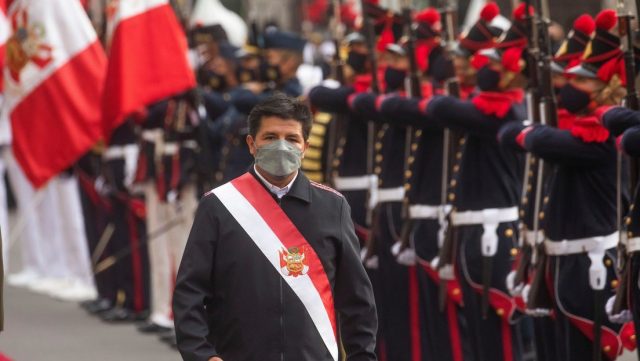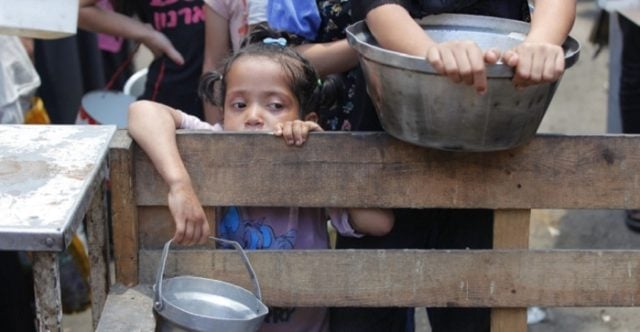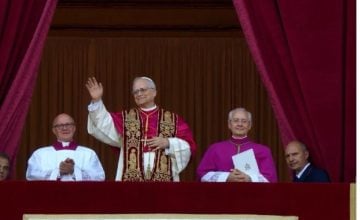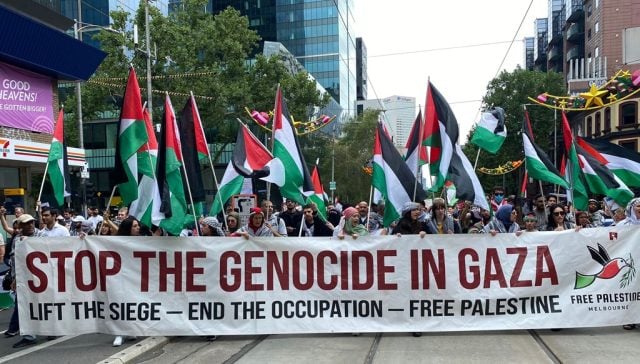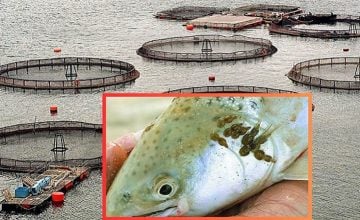Pedro Castillo’s presidency in Peru was marked by instability, since he never managed to form a solid work team, had more than 70 ministers, faced constant threats of dismissal, and was denounced for alleged corruption in six judicial investigations.
Since he took office, the opposition in Congress and the main media have bet on the failure of his government, predicting that he would not finish his mandate and on three occasions promoted the «vacancy due to moral incapacity», that is, the institutional mechanism that exists in Peru. to depose the rulers, informs RT.
Pressure from the right wing sector was added to that of the left, since the internal problems of the alliance that brought him to power culminated in a series of ruptures that weakened him politically by leaving him almost alone.
In addition, both Castillo and his relatives and his ministers were involved in endless scandals and controversies, either due to unfortunate statements or complaints that led to the arrest of his sister-in-law and the escape of his nephews.
Plunged into a governance crisis, the president denounced that the opposition wanted to commit a coup and requested and obtained the intervention of the Organization of American States (OAS).
A mission from the organization traveled to the country and, after meetings with leaders of the Executive, Legislative and Judicial branches, called for a truce and for all political actors to respect democracy. The opposition ignored the call and moved forward with the third «vacancy» motion.
But before facing it and having to defend himself again before the plenary session, the president opted to dissolve Congress, which left him alone. Despite this, the vacancy motion advanced and he was ultimately removed. The vice president, Dina Boluarte, now assumes the presidential position.
2021: Castillo is President of Peru
July 28: Pedro Castillo assumed office as president of Peru. After a post-electoral conflict, the authorities confirmed his victory with 50.1% of the votes, compared to the 49.8 reached by Keiko Fujimori. The social polarization and the institutional weakness of the president are a constant reality in the political sphere of Peru. The opposition has called for his resignation from day one.
July 29: Castillo presents his first cabinet headed by the president of the Council of Ministers, Guido Bellido, who immediately receives criticism for his alleged links with the terrorist organization Sendero Luminoso, among other accusations.
August 17: Foreign Minister Héctor Béjar resigns from office, two weeks after being appointed, after an interview came to light in which he blamed the Navy for having incited the terrorism that Peru suffered in the 1980s and 1990s, which provoked criticism from congressmen and opposition media. It is the first casualty of the cabinet.
August 27: The congress grants Guido Bellido a vote of confidence after weeks of uncertainty and controversy.
August 31: The Minister of Labor, Iber Maraví, resigns harassed by complaints that link him to terrorism.
October 6: Bellido resigns at the request of the president. In his 69 days at the head of the cabinet, he was surrounded by controversy over a complaint for alleged «advocacy for terrorism», in addition to his fights with other ministers and congressmen. He even contradicted President Castillo on some occasions.
October 27: The president’s youngest daughter celebrates her birthday at the Governmental Palace and in the midst of the pandemic restrictions that prevent this type of event, which sparks a controversy and a judicial investigation. Three months later, the president will say that he found out about the celebration at the last moment, when he heard «the noise».
November 3: The Minister of the Interior, Luis Barranzuela, resigns due to the scandal he caused by organizing a party in his house that violated the restrictions of the pandemic.
November 4: Mirtha Vásquez obtains a vote of confidence in Congress as the new president of the Council of Ministers.
November 24: The Secretary General of the Governmental Palace, Bruno Pacheco, is forced to resign after a series of corruption scandals and the alleged irregular promotion of military personnel.
November 28: The television program Cuarto Poder reveals, through a series of videos, that Castillo holds clandestine meetings at his home with officials, businessmen, and former ministers. One of the guests is Karelim López, a businesswoman who has managed to get companies that she represents to obtain concessions from the State. The opposition intensifies allegations of corruption against the president. The peruvian Justice system is investigating him for influence peddling.
December 7: Congress rejects with a majority of votes the first attempt to remove Castillo, who was promoted by the right-wing opposition for alleged «moral incapacity». The request is rejected.
December 21: Congress approves a motion of no confidence for Education Minister Carlos Gallardo, who resigns after the scandal caused because of exams being sold to obtain teaching appointments.Beginning of 2022: The crisis deepens
January 24: Castillo offers his first international interview to CNN. He provokes a strong controversy because he recognizes that he was not trained to be a politician, nor a president; and also by announcing that he is willing to submit to popular consultation the possibility of Peru granting Bolivia access to the sea. The opposition accuses him of treason.
January 28: The Minister of the Interior, Avelino Guillén, resigns due to his disagreements with the General Commander of the Police, Javier Gallardo, whom the president refuses to dismiss.
January 31: Castillo announces the total renewal of the cabinet.
February 1: The president appoints Héctor Valer as the new president of the Council of Ministers, but he does not even take office. Four days later he resigns amid the scandal sparked by allegations that he has beaten his wife and his daughter.
February 8: Aníbal Torres becomes the fourth president of the Council of Ministers. A month later, he got a vote of confidence from Congress.
March 1: The Minister of Transport and Communications, Juan Silva, resigns amid allegations of corruption for allegedly manipulating public works tenders to favor certain businessmen.
March 14: At this moment Congress admits the second vacancy request against Castillo, who two weeks later appears before the plenary session to defend himself for five hours. The impeachment trial does not get the necessary votes.
March 20: The new Minister of Justice and Human Rights, Félix Inocente Chero Medina, takes office. With him, Castillo already accumulates the record of 50 ministers in less than eight months.
March 28: The National Union of Transporters and Drivers begins a national and indefinite strike to protest the rise in fuel prices. In the following days the country is in chaos, there are roadblocks, looting, clashes and massive demonstrations.
March 31: Congress censures the Minister of Health, Hernán Condorí, who is forced to resign just 45 days after taking office. They accuse him of mismanagement in the coronavirus vaccination campaign.Curfew and controversy
April 5: Castillo decrees a curfew that is widely rejected. Thousands of people rebel and take to the streets to demand the resignation of the president, who hours later repeals the State of emergency. The media and partisan opposition takes his early departure from power for granted. In the midst of the political crisis, some voices are betting on the closure of Congress and a Constituent Assembly. They also accuse «the right wing sector that calls for a coup» of wanting to overthrow a democratically elected government.
April 7: The President of the Council of Ministers, Aníbal Torres, praises Adolf Hitler, considering that he «turned Germany into a world power».
April 8: Congress passes a motion asking Castillo to resign.
April 18: Pedro Castillo causes a new scandal by proposing chemical castration for rapists of children, adolescents and women after the case of the three-year-old girl who was the victim of sexual assault.
May 17: The Peruvian Police issue an international alert to arrest a nephew and a former secretary of Pedro Castillo for alleged acts of corruption.
June 30: Castillo submits his «irrevocable resignation» from the membership of the Peru Libre party that brought him to power.
July 26: Bruno Pacheco, Castillo’s former secretary, turns himself in to the justice authorities after four months of being a fugitive.
August 3: The President of the Council of Ministers, Aníbal Torres, resigns, but Castillo does not accept his decision and keeps him in the cabinet.
August 4: The Peruvian Congress does not authorize Pedro Castillo to travel to Colombia for the investiture of Gustavo Petro. Weeks later it doesn’t let him travel to the Vatican either.
August 10: The Peruvian Justice authorizes the arrest of Yenifer Paredes, Castillo’s sister-in-law, for an alleged act of corruption. Police raid the presidential residence. The country is experiencing a climate of maximum tension. The president calls to defend democracy. Finally, Paredes turns herself in and remains in pretrial detention.
August 11: The Peruvian Prosecutor’s Office opens the sixth investigation against Castillo and prevents the first lady, Lilia Paredes, from leaving the country for 36 months. Rumors are growing that she will be arrested.
August 25: Castillo rearms his Cabinet again. In 13 months of Government, he has already replaced 68 first-level officials.
September 5: Castillo testifies before the Prosecutor’s Office and rejects all the accusations against him.
Last months of Castillo: the tension increases
October 11: The Prosecutor’s Office files a constitutional complaint against Castillo, who becomes the first president in the history of Peru to face this accusation. He is accused of criminal organization and influence peddling.
That same day, the National Police and the Public Ministry raided the offices and private homes of a group of congressmen known as «Los Niños» (The Children) and officials, friends and relatives of Castillo. All are denounced in various cases for alleged corruption. The political crisis worsens.
October 20: The OAS agrees to send a mission to Peru at the request of Castillo, in order to promote dialogue between the government and the opposition. On December 1, after visiting the country, the group of experts proposes «a truce».
November 17: Congress denies Pedro Castillo permission to travel to the Pacific Summit in Mexico. Andrés Manuel López Obrador decides to cancel the meeting.
November 22: The Constitutional Court of Peru annuls the process against Pedro Castillo for «treason against the homeland», one of the most serious cases against him.
November 25: The president of the Council of Ministers of Peru, Aníbal Torres, presents his resignation letter for the third time. He was one of the few civil servants who lasted the longest in office: nine months and 16 days.
December 2: The Peruvian Congress approves the initiation, for the third time, of a political trial against Castillo. The debate on the vacancy motion is scheduled for December 7.
December 7: Hours before the vacancy motion was held, the president surprisingly announces the dissolution of Congress. Finally, the chamber goes ahead with the initiative and dismisses the president. Minutes later, he is arrested on the alleged crimes of «sedition, abuse of authority and serious disturbance of public peace». The vice president, Dina Boluarte, takes office.
